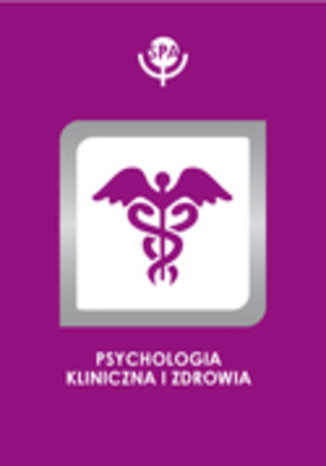Array
(
[id] => 104
[date] => 2017-10-01
[doi] => 10.14691/CPPJ.23.1.159
[title] => RADZENIE SOBIE ZE STRATĄ DZIECKA A WYSTĘPOWANIE POZYTYWNYCH ZMIAN POTRAUMATYCZNYCH
[title_en] => COPING WITH LOSS OF A CHILD AND OCCURRENCE OF POSITIVE POSTTRAUMATIC CHANGES
[authors] => Nina Ogińska-Bulik, Paulina Michalska
[abstract] => Wprowadzenie: Celem podjętych badań było ustalenie związku między stosowanymi strategiami radzenia sobie z traumą wynikającą ze straty dziecka, a występowaniem pozytywnych zmian potraumatycznych. Metoda: Analizie poddano wyniki 76 osób, które przyznały, że strata dziecka była dla nich traumatycznym wydarzeniem. Większość badanych (55,3%) stanowiły kobiety. Wiek badanych mieścił się w zakresie 18-62 lata (M=35,88; SD=9,52).W badaniach wykorzystano Inwentarz Potraumatycznego Rozwoju oraz Inwentarz do pomiaru radzenia sobie ze stresem – Mini-Cope. Wyniki: Badane osoby, które doświadczyły straty dziecka, ujawniają pozytywne zmiany potraumatyczne, przede wszystkim w zakresie doceniania życia i relacji z innymi. Uzyskane wyniki wskazują na dodatnie powiązania wzrostu po traumie przede wszystkim z poszukiwaniem wsparcia emocjonalnego i instrumentalnego, ale także z takimi strategiami, jak aktywne radzenie sobie, planowanie, zwrot ku religii, wyładowanie oraz zażywanie substancji psychoaktywnych. Poszukiwanie wsparcia instrumentalnego okazało się głównym predyktorem potraumatycznego wzrostu. Wnioski: Występowanie wzrostu po traumie jest powiązane ze stosowaniem zarówno strategii opartych na zbliżaniu się do problemu, jak i jego unikaniu.
[abstract_en] => Introduction: The study aimed to establish the relationship between coping strategies with trauma resulting from the loss of a child and occurrence of positive posttraumatic changes. Method: The results of 76 persons, who admitted that the loss of a child was a traumatic event for them were analyzed. The majority (55.3%) of respondents were women. The age of the participants ranged from 18-62 years (M=35.88; SD=9.52). The following Polish versions of standardized tools were used: Posttraumatic Growth Inventory and Coping Inventory – Mini-Cope. Results: The examined persons who have experienced the loss of a child revealed positive posttraumatic changes, primarily in terms of appreciating of life and relations with others. The obtained results showed positive relationship between growth after the trauma and seeking of social support, both emotional and instrumental, but also with such strategies, as active coping, planning, turning to religion, venting and substance use. Seeking of instrumental support appeared the main predictor of posttraumatic growth. Conclusions: The occurrence of growth after the trauma is related to the use of both approach and avoidant coping strategies.
[keywords] => Słowa kluczowe: trauma, potraumatyczny wzrost, strategie radzenia sobie, strata dziecka
[keywords_en] => Key words: Trauma, posttraumatic growth, coping strategies, loss of a child
[file_path] => /files/articles/2017-23-radzenie-sobie-ze-strat-dziecka-a-wystpowanie-pozytywnych-zmian-potraumatycznych.pdf
[okladka] => psychologoia_kliniczna_i_zdrowia.jpg
[rocznik] => Rocznik: 2017 Tom: 23 Numer: 1
[strony] => 159-166
)










 Pobierz pełny tekst
Pobierz pełny tekst



